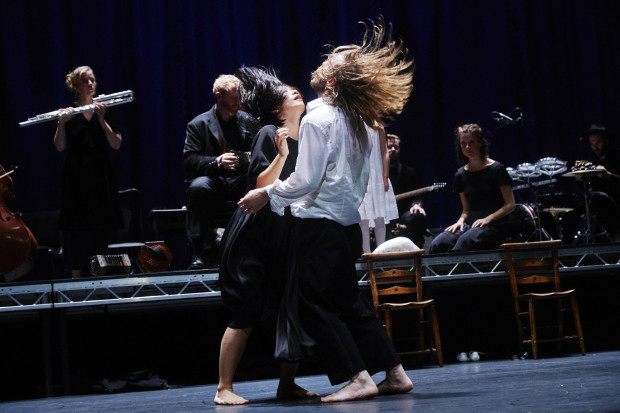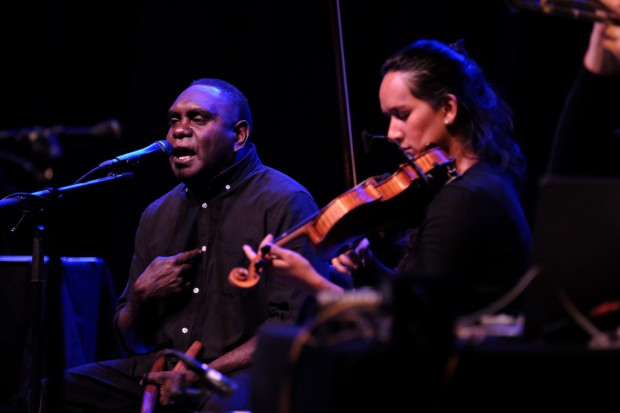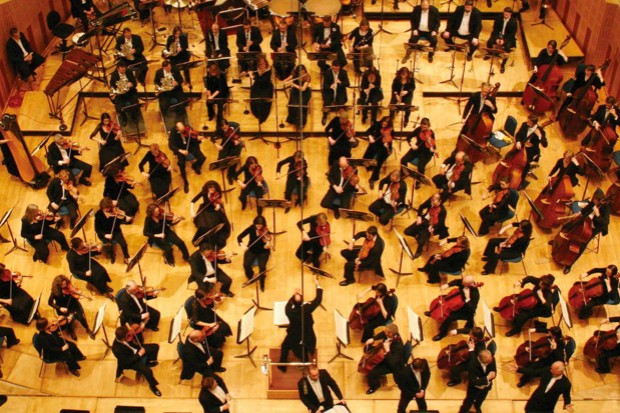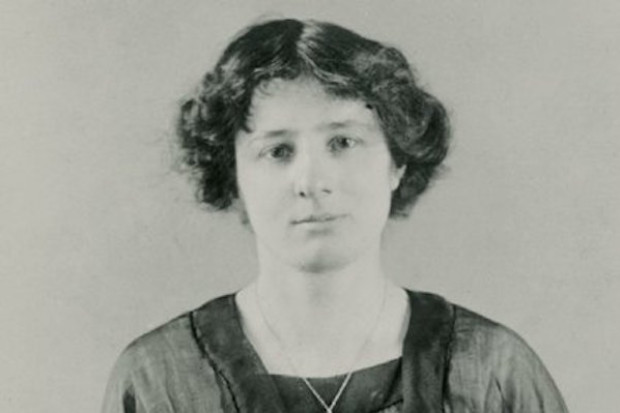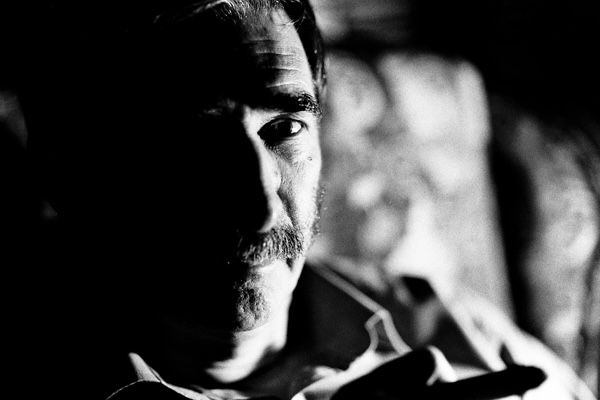
Composer John Buckley
The Remarkable Consistency of John Buckley
The composer John Buckley’s first instrument is flute, and his long-standing devotion to the instrument is finally given its due in this new CD of works for flute, flutes, and piano, which covers the full fifty years of his compositional career.
One of the new works on Boireann – it was written specifically for this release – is In Memoriam Doris Keogh (2022). Keogh (1922–2012) was Buckley’s flute teacher at the Royal Irish Academy of Music, and this work’s three movements (‘Seascape’, ‘Nocturne’ and ‘Dance’) ‘reflect’, in Buckley’s words in the substantial liner notes, ‘different aspects of her life and music.’ I can’t speak to that, but the music is mostly mature, careful and delicate; of particular note is the breath-like patience of ‘Nocturne’, in which the piano offers thoughtful, measured responses to the flute’s melodic gestures.
The other new work, also composed for this release, is Five Études for Two Flutes (a 2022 arrangement of movements from various two-violin works), performed by Emma Coulthard and Emma Halnan. It is by far the weakest work on the album. For example, the opening movement, ‘Perpetuum Mobile’, lacks the grit it had in its original arrangement (from Three Preludes for Two Violins (2009)) and also loses some interesting double-stopped harmonies. More generally, this suite is far more conservative than anything else on the album, and seems hemmed in by this conservatism. Finally – with the caveat that I am not a flautist – the five études do not seem exactly virtuosic. This all makes me suspect that they are studies for students rather than explorations of new techniques. This is no reason not to record them – but they didn’t need to open the album.
The other set of études on the album is more interesting. Three Études for Piano (2018) opens with another perpetuum mobile (a favourite of Buckley’s), ‘Nine Variations’. Despite echoes of Ligeti’s ‘L’escalier du diable’, though, this is not primarily a performance étude; as Buckley writes in the liner notes, ‘the term [‘étude’] here is meant to imply a particular focus on specific musical concerns’ – here one of subtly shifting rhythms over a driving quaver figuration. The second étude, ‘Through the Empty-Vaulted Night’, based on an image from John Milton, is a study in the juxtaposition of subtly different harmonic worlds to create a polytonality of melody and space, and is an intriguing piece that I would love to puzzle over at the keyboard myself. If showmanship is less a concern in this étude than virtuosity of pianistic tone, then in the final étude, ‘Stars and Dreams’, showmanship is entirely absent. This étude is even more a pianistic bifurcation than ‘Through the Empty-Vaulted Night’: the lower registers are given to lush, slow chords – dreams – and the upper register given to shimmering stars.
David Appleton gives a superb interpretation of ‘Nine Variations’ and performed the other études with brilliant drama. I found his tone often too harsh, though, for the subtler études
Interpretations
Three Pieces for Solo Flute (1973) is not just the earliest work on this album but just about Buckley’s earliest composition. It is a fine work, not only as a student piece, and has been performed many times down the years, including by William Dowdall on Buckley’s In Lines of Dazzling Light (1999). This recording makes a rich point of comparison with Coulthard’s more aggressive interpretation on the present release – which, in the end, seems to me to lack the moments of stillness that give the work its shape.
Another early work is the Two Fantasias, written as a pair for treble recorder in 1984–87 and arranged for solo alto flute in 2004. We have a rare treat for an Irish work here: in addition to Dowdall’s recording on Buckley’s In Winter Light (2004), we have a third interpretation: Aidín Halpin’s recorder version on In Lines of Dazzling Light. Coulthard’s interpretation is a subtle but valuable contrast to those: she draws out the sinewy melodiousness of the first fantasia more than its delicate atmospherics, and brings out the drama of the second fantasia.
Airflow (1998), for solo flute, is actually half of a work the other half of which is a sculpture by Vivienne Roche. Unfortunately, I can’t find any record of Roche’s sculpture so I can only guess how this piece works with its pair, but Coulthard does great justice to it, especially in giving its more intense passages a sense of force and weight.
The final solo flute work is Sea Echoes (2008), in which Coulthard again plays with drama and excitement but without, to my ears, always succeeding in bringing out the mysteriousness of the work.
The title of the album comes from its last track, Boireann (1983) for flute and piano. At ten minutes, this is the longest stretch of music on the album (Buckley has always been musically to-the-point). Coulthard and Appleton give a fittingly craggy interpretation of this work explicitly about the Burren, though they could have leant into the gentleness of the quiet passages more to better bring out the softness that is also this landscape’s beauty, both in itself and through being surrounded by monumental limestone.
This new album is more an archive than a narrative: it’s as if it is intended as Buckley’s Collected Works for Flute and Piano, Vol. I. As an archive, though, it is a fascinating cross-section of the entirety of Buckley’s writing for piano and especially flute. Buckley’s confidence with the instrument naturally comes through, as does his love for its natural sound: extended techniques are rare (even in Sea Echoes, written for flute with sliding head-joint, the glissandi are never gratuitous), and instead he writes simple and highly melodic lines in which the flute’s tone and the performer’s musical sense are given room to play. Also on display is the remarkable consistency (excepting the Five Études) of Buckley’s voice down the years. Even in 1973 it was mature and individual; if it is hardly avant-garde now, neither does it sound dated or worn out. It is a speaking musical voice, unshowy but meaningful.
Boireann: Music for Flute and Piano by John Buckley is released on the Métier label. Visit https://divineartrecords.com/recording/boireann-music-for-flute-and-piano.
Subscribe to our newsletter.
Published on 14 December 2023
James Camien McGuiggan studied music in Maynooth University and has a PhD in the philosophy of art from the University of Southampton. He is currently an independent scholar.










